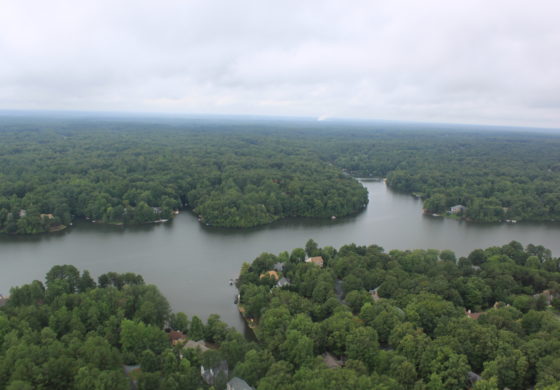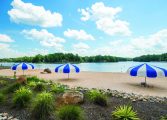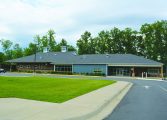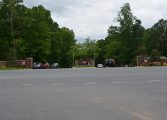By Heather Michon
Correspondent
As Lake Monticello residents pay their 2019 annual homeowners association dues, the Board of Directors is looking toward a major increase for 2020.
The board members met in an open work session at Ashlawn Clubhouse Wednesday (Jan. 9) to discuss the need to raise the dues and shore up critical funds.
Finance Director Marlene Weaver gave a lengthy presentation outlining numerous issues facing the community: inadequate staffing and infrastructure, low salaries that make it difficult to recruit and retain quality staff, declining reserve funds for roads and major repairs, increasing insurance rates, and the need to replace the golf maintenance building.
In the view of Weaver and many on the board, the association has run on too lean a budget for too many years, as buildings have aged, infrastructure has fallen into disrepair, and costs have risen.
“Right now, we are living beyond our means,” she said.
The bylaws allow the board to increase dues by 3 percent annually without member approval, but Weaver said this doesn’t begin to cover the increasing costs of maintaining and improving the community.
She recommended an increase of $250, with $75 additional dollars allocated to staffing and operations, $50 for major repairs, $25 for roads, and $50 to begin a new facilities reserve fund for buildings.
A final $50 would financially support the Lake’s two restaurants. Weaver and fellow director Tom Braithwaite said that members would receive a $50 voucher redeemable at either venue.
A $250 increase would raise annual dues from their current $861 to $1,111. Homeowners must also pay the yearly improved property fee of $212 and are charged $10 annually per car for barcodes to allow them into the gates.
Weaver noted that Lake Monticello has much lower annual dues than Lake of the Woods, a comparably-sized homeowners association in Orange County near Fredericksburg, where residents currently pay around $1,500 a year plus an annual special assessment.
The directors spent about an hour debating different proposals and allocations before tentatively settling on asking members for an annual increase of $180. The $50 fee for restaurants might be presented as a separate vote on the ballot at the annual meeting in late June.
Wednesday’s meeting was just the start of a months-long process.
Discussions from the work session will be used to create a formal proposal for the regular monthly meeting Jan. 24, where there will be more discussion and debate. The final proposal will be voted on by early April, and members will cast their votes by June 29.
Once they have a final plan, the board will hold town hall meetings and informational sessions to make their case for increases to the membership.
About 30 people packed into the small meeting room on Wednesday, but as in any work session, were not allowed to ask questions or interact with the board during the meeting.
Any proposed increases are likely to meet strong resistance from the community.
Director Rich Barringer said he had violated his own rule and looked at what he called the “Facebook haters’ page,” during the session and “it was filled up with how bad we were.”
He asked the audience to speak to board members directly about any questions they had about the increases or the process.
The next board meeting will be Jan. 24 at 7 p.m. in the Fairway clubhouse.





